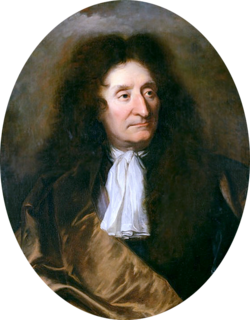A Quote by Jean de La Fontaine
O love, when thou gettest dominion over us, we may bid good-by to prudence.
Related Quotes
If thy desire to raise thy fortunes encourage thy delights to the casts of fortune, be wise betimes, lest thou repent too late; what thou gettest, thou gainest by abused providence; what thou losest, thou losest by abused patience; what thou winnest is prodigally spent; what thou losest is prodigally lost; it is an evil trade that prodigally drives; and a bad voyage where the pilot is blind.
O God, enlarge within us the sense of fellowship with all living things, even our brothers, the animals, to whom Thou gavest the earth as their home in common with us. We must remember with shame that in the past we have exercised the high dominion of man with ruthless cruelty so that the voice of the earth, which should have gone up to thee in song, has been a groan of pain. May we realize that they live, not for us alone, but for themselves and for Thee and that they love the sweetness of life.
The very beginning of Genesis tells us that God created man in order to give him dominion over fish and fowl and all creatures. Of course, Genesis was written by a man, not a horse. There is no certainty that God actually did grant man dominion over other creatures. What seems more likely, in fact, is that man invented God to sanctify the dominion that he usurped for himself over the cow and the horse.
You will never have a greater or lesser dominion than that over yourself...the height of a man's success is gauged by his self-mastery; the depth of his failure by his self-abandonment. ...And this law is the expression of eternal justice. He who cannot establish dominion over himself will have no dominion over others.
Alone thou goest forth, O Lord, in sacrifice to die; is this thy sorrow naught to us who pass unheeding by? Our sins, not thine, thou bearest, Lord; make us thy sorrow feel, till through our pity and our shame love answers love's appeal. This is earth's darkest hour, but thou dost light and life restore; then let all praise be given thee who livest evermore. Grant us with thee to suffer pain that, as we share this hour, thy cross may bring us to thy joy and resurrection power.
Beneficence is a duty. He who frequently practices it, and sees his benevolent intentions realized, at length comes really to love him to whom he has done good. When, therefore, it is said, "Thou shalt love thy neighbor as thyself," it is not meant, thou shalt love him first and do him good in consequence of that love, but, thou shalt do good to thy neighbor; and this thy beneficence will engender in thee that love to mankind which is the fulness and consummation of the inclination to do good.




































